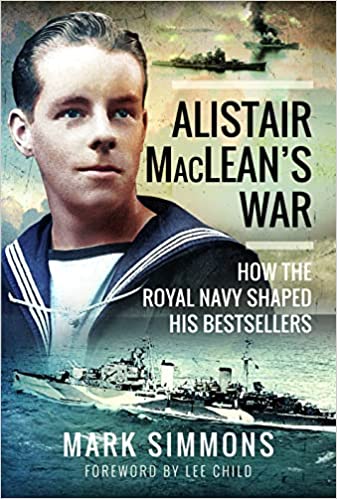
Alistair MacLean's WarA review of the book by Mark SimmonsThree prominent themes in Alistair MacLean's run of novels were war, boats, and war involving boats. While he wasn't a natural expert on every topic he wrote about, MacLean certainly knew naval warfare well from his time in the Royal Navy during World War II. Mark Simmons, an author and veteran of the Royal Marines, has written Alistair MacLean's War: How the Royal Navy Shaped His Bestsellers. A detailed examination of MacLean's naval service, it provides in-depth reports on many related naval operations and the Allied and Axis strategies behind them. The book also connects the dots between his service and some of his naval conflict stories. Any MacLean fan who absorbs the contents of this book will gain a much firmer grasp of the real-life activities that he processed into fiction.
The action, aboard MacLean's ships and in the related novels, takes place in three main regions:
When I first read H.M.S. Ulysses, I was overwhelmed by unfamiliar jargon about different parts of a warship, duties of different sailors, and so forth. Simmons, to his credit, provides a glossary of many of the acronyms and other terms that readers may not know. Still, the vernacular used in discussing naval operations is sometimes new to a landlubber like me. The book's main strengths are in the level of detail it provides (reflecting considerable research) and the generally engaging prose. Simmons manages to keep analyses of naval planning fairly lively rather than dry. However, I was surprised that the book doesn't seem to have been carefully proofread. Numerous passages show faulty punctuation, awkward wording, and run-on sentences. Examples:
This lack of polish does detract slightly from the reading experience. Overall, though, I found this an engrossing book that broadened my knowledge of MacLean's wartime experiences, of many WWII naval engagements, and of how closely the action in MacLean's books did or did not match the realities of those days. | |
Questions/ideas? Drop me a line: |
All contents © copyright 2010-25.
Literature lover? Learn about my favorite book, Jane Eyre — visit my site at JaneEyre.net!
